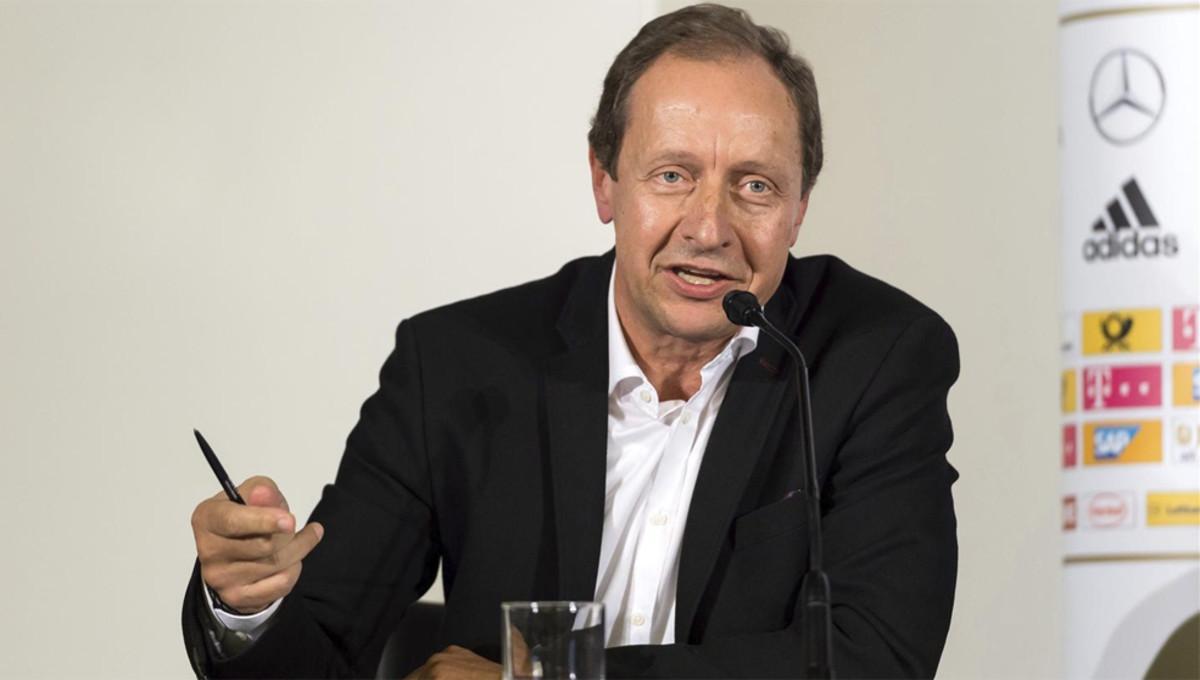VAR system under pressure in Germany after complaints of bias

German football chiefs want to reorganise refereeing in the Bundesliga after the head of their fledgeling video refereeing (VAR) system was sacked amidst accusations of bias.
The VAR system is being trialled this season in Italy and Germany, generating much debate in both countries with fans complaining it slows games down.
FIFA have yet to confirm whether the VAR will be used at next year's World Cup in Russia, but the fledgling system has had a bad start in Germany.
There has been furious debate over when the VAR should intervene and how long it takes for decisions to be reviewed.
"We need a new start in the structure. The pilot phase of the video assistant has relentlessly revealed problems, which have long been there, and must be solved," said Reinhard Rauball, president of the German Football League (DFL) in a statement released on Tuesday.
Fans have unfurled banners at grounds around Germany demanding the end of the VAR experiment, but things took a turn for the worse on Sunday.
Daily newspaper Bild accused Hellmut Krug, the head of the VAR centre in Cologne - where scenes in Bundesliga matches are reviewed - of bias when influencing decisions to help Schalke, the team he supports, during a Bundesliga match.
On Monday, the German Football Association (DFB) replaced Krug as head of the VAR centre, but insisted the decision was taken before the Bild story and he remains involved in the project.
Nevertheless, the scandal has undermined confidence in the VAR and sparked debate about what impact the system has on matches.
Now Rauball says there must be clear transparency in how decisions are reached to win back lost trust.
"Regardless of name and position, it is necessary to adapt organisational structures and responsibilities to the massive increase in the need for transparency and clear accountability," added Rauball.
"The great benefit of the video assistant is to reduce obvious wrong decisions and to make the competition a bit more fair.
"However, unclear responsibilities and personal disputes must not interfere with this meaningful move.
"Only when players, coaches, club officials and spectators can understand the processes and rule interpretations and their benefits, is it possible to achieve the necessary acceptance for a meaningful intervention."
There is some confusion at Germany's top clubs about exactly when the VAR can intervene.
"I think it is still not clear on all sides when the video assistant should intervene," said Schalke's sports director Christian Heidel.
"We have to correct that."
Heidel wants the VAR to get involved only if there is a "crystal clear mistake", for example, "a red card incident which happened outside the referee's field of vision".
"That was the initial idea, but in practice, it looks different," Heidel added.
Ronny Zimmermann, the vice-president of the DFB, suggests in Wednesday's edition of magazine Sport Bild using a 'challenge system' where coaches have a set number of chances to have key scenes reviewed.
The senior DFB figure also suggests having video referees make decisions from television vans parked at individual stadiums and says that "another solution" is needed so that reasons for decisions are made clear to fans.




